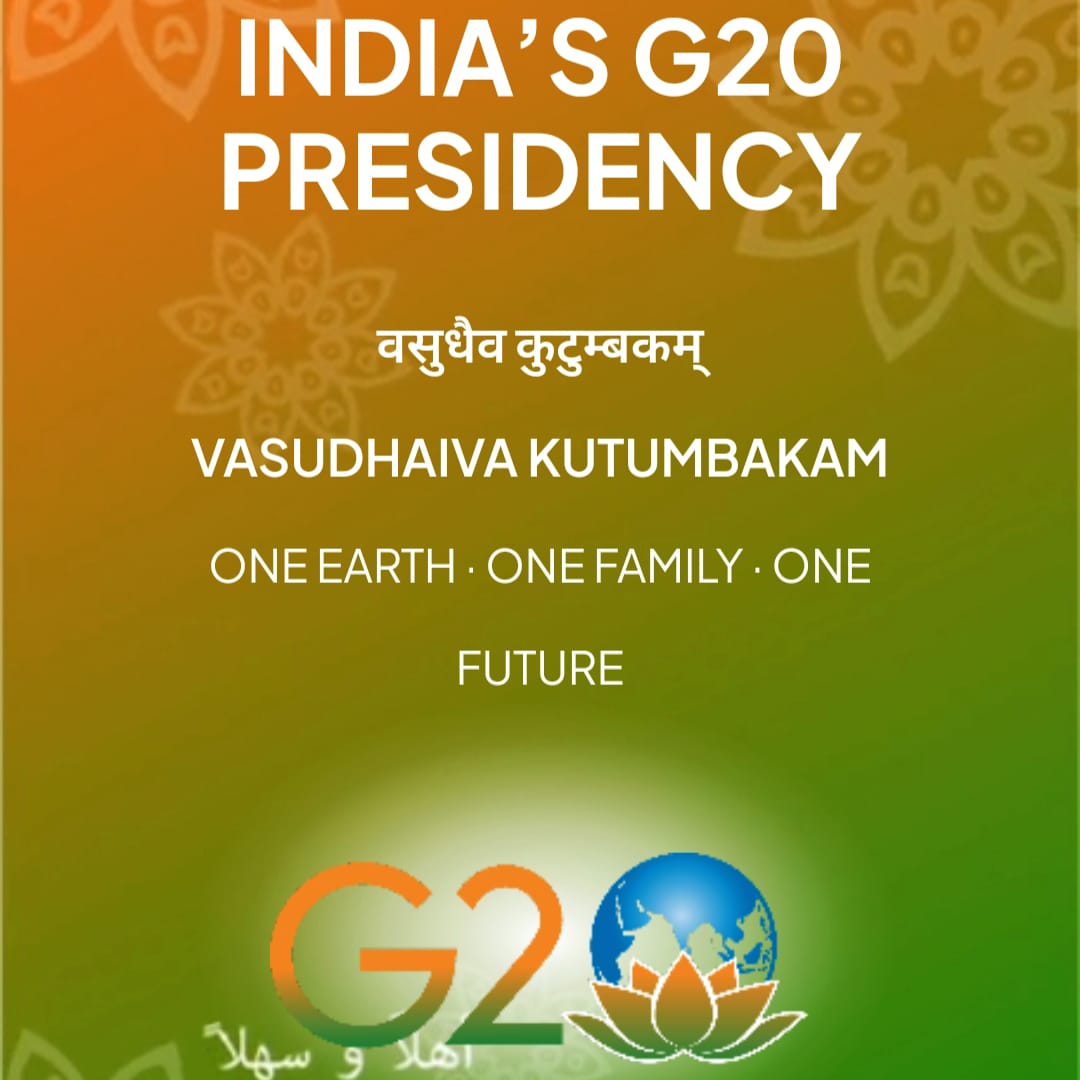The 18th G20 Summit, set to take place in New Delhi in 2023, carries a profound theme that resonates deeply with the global community. The theme, “Vasudhaiva Kutumbakam,” derived from ancient Sanskrit literature, embodies the essence of unity and interconnectedness. In this article, we delve into the meaning of “Vasudhaiva Kutumbakam” in Hindi and English and explore its significance in the context of the G20 Summit.
Understanding “Vasudhaiva Kutumbakam”
1. Sanskrit Origins:
- “Vasudhaiva Kutumbakam” finds its roots in the Maha Upanishad, a timeless Indian text.
- In Sanskrit, “Vasudhaiva” refers to “the world” or “Earth,” while “Kutumbakam” means “family.”
- Translated, it means “The world is one family.”
2. One Earth, One Family, One Future:
- The theme for the G20 Summit aptly translates “Vasudhaiva Kutumbakam” into English as “One Earth, One Family, One Future.”
- This translation captures the essence of global togetherness and shared aspirations.
Significance of the Phrase “Vasudhaiva Kutumbakam”

1. Unity Beyond Boundaries:
- “Vasudhaiva Kutumbakam” serves as a reminder that, irrespective of our diverse backgrounds, we are part of a single global family.
- It promotes unity, encouraging people to transcend geographical and cultural divisions.
2. Respect for All Life:
- The phrase underscores the intrinsic value of every life form on Earth, extending beyond humans to encompass the natural world.
- It calls for responsible stewardship of our planet and its ecosystems.
3. Interconnectedness:
- In an increasingly interconnected world, recognizing our interdependence is crucial.
- “Vasudhaiva Kutumbakam” highlights that actions in one part of the world have far-reaching effects globally.
Implications of the Philosophy
1. Environmental Consciousness:
- Embracing the spirit of “Vasudhaiva Kutumbakam” necessitates a commitment to environmental conservation.
- This philosophy encourages sustainable practices and the protection of biodiversity.
2. Cultural Exchange and Understanding:
- Fostering cultural exchange and understanding becomes imperative under this principle.
- It promotes dialogue and learning among diverse cultures and traditions.
3. Conflict Resolution and Peace:
- Recognizing our shared humanity, the philosophy promotes peaceful conflict resolution.
- It encourages cooperation in addressing global challenges and conflicts.




 Which Country is known as the Land of Mo...
Which Country is known as the Land of Mo...
 Which Languages is known as the Mother o...
Which Languages is known as the Mother o...
 Which Country is known as the Highest Pr...
Which Country is known as the Highest Pr...








